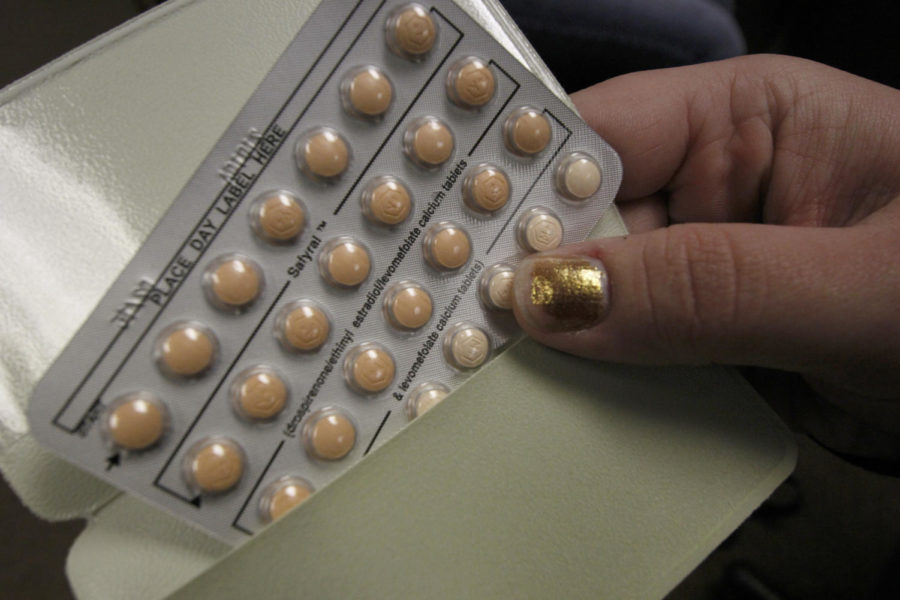Finn: Developing nations need birth control
There are several ways to prevent pregnancy, such as birth control pills.
March 31, 2014
Birth control.
For some women it is a nuisance, a small act that you have to remember each day or face serious consequences. For others it is a luxury, a fabulous gift that simplifies their lives in a big way. However, for many women it is not even an option.
A small pill taken each day has incredible power, and for American women it comes at a relatively reasonable price. Women in developed countries can make a five minute stop at the local pharmacy, grab their prescription and continue on with their day. It is a simple task and, even though it is not something we stop to think about, the ramifications of not having access to these little, colored pills would dramatically alter the lifestyles of women across the nation.
Most women do not take the time to think about how they would cope without birth control because for most American women it is easily within reach. This medication is so widely used that people do not often realize that it has the power to change lives for the better.
According to NationMaster.com, an international statistics compilation service, “In Bangladesh, almost sixteen percent of all fifteen-year-old girls are pregnant or have already had a child.” Parts of South America and Africa are struggling with the same issue. Young girls are becoming pregnant at incredibly young ages. Teenage pregnancies can prevent those women from continuing their education, finding good work and rising from poverty. It is a sad cycle that we are witnessing, especially because there is a feasible solution.
The cause of these shocking teenage pregnancy stats is a combination of lack of education, lack of resources and a difference in culture. Changing an area’s culture is extremely difficult and it is not clear if we even have the power to do so. However, we can address the other causes.
Empowering these women with education would do wonders to turn these numbers around and decrease the percentage of girls in places like Afghanistan and the Democratic Republic of Congo that are becoming pregnant at a disturbingly young age. Education, as we have witnessed, has the power to do miraculous things, and we would see a huge transformation if we could really focus on educating the youth of these developing countries about contraception and safe sexual practices.
Many of the fifteen-year-old girls living in places like South Africa are becoming pregnant so early because they simply do not know enough about the many ways to prevent pregnancy. Not only will providing today’s young women with education about birth control help to improve their lives but it can save them from a host of other dangers.
A fifteen-year-old girl’s body has not yet reached full maturity, which puts her at serious risk of dying during pregnancy. According to a PBS documentary on child brides, “Girls under the age of fifteen are five times as likely to die during childbirth or pregnancy than women who are older than fifteen.”
As for addressing the problem of a lack of resources, developed nations are able to do that as well. One thing America can pride itself on is the amount of international aid it provides to struggling countries. Birth control needs to be apart of that aid package. If we could develop a way to consistently provide women of impoverished nations with birth control, in the future we would see dramatic improvements in the rates of teen pregnancies.
We could end the cycle of adolescent motherhood and do these women a great deal of good if we could simply educate them and supply them with the necessary contraceptives. Rather than raising a family at the age of fifteen, these young girls could be working toward higher education, finding jobs or just enjoying their youth. With enough funding and effort, developed nations could most definitely give girls living in poverty a chance to break away from the current norm and set new standards.
Ten percent of all births are to mothers under the age of twenty, and ninety percent of those births happen in undeveloped nations that do not have access to education or to contraceptives. These are startling numbers, and I think they are figures we should be paying attention to.







